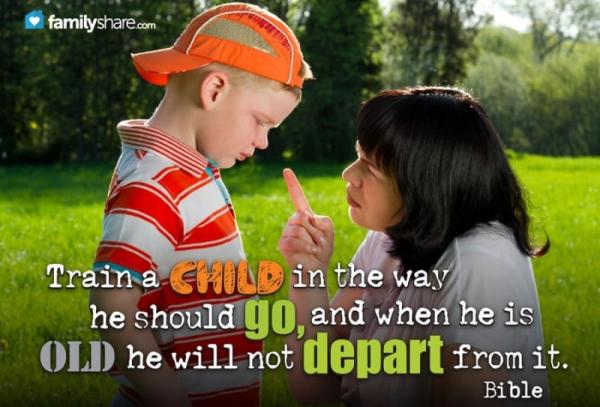
Certainly parents don't enjoy punishing their children. However, sometimes it's necessary to punish children in order to help them be mindful of their behavior and to teach them how to be responsible teenagers and adults.
In the process of issuing punishment, some parents inadvertently punish themselves right along with their children. Grounding as a punishment is a good example of this. In an article in Psychology Today, Dr. Carl PinkHardt cites some concerns about using grounding (deprivation) as a punishment:
Grounding turns you into a warden
When you ground your child, you essentially become a jailer. Now you are forced to be in the company of the unhappy person being jailed. This also could prevent you from completing tasks that you need to do.
Deprivation of all freedoms is ineffective
It's common for parents to be frustrated while imposing a punishment and simply remove all toys (such as electronics) from their children. When a child is devoid of all forms of enjoyment, he or she might feel that there is nothing left to lose. Then, as a parent, you don't have anything else to "take away" if the inappropriate behavior persists.
Removing a child from social interactions too long can damage self-esteem
If you ban all social interactions (such as sports, friendship circles and cell phones) it could be difficult for your child to return after being away for too long. For example, the dynamic of friendships might have changed during your child's absence. This could negatively impact your child's friendships and have a lasting effect on his or her self-esteem.
Here are three ways to discipline children without punishing yourself or having a lasting negative effect on them.
Make good on your threats
Informing your children you will "turn this car around" if the insolent behavior continues will work only if you are prepared to carry out your threat. It might work if you are on your way to a fun activity, but if you are on errands that need to be done, you lose some of your bargaining power. In this case, issue a different threat that allows you to keep going on your errands, but effectively announces that there will be punishment in your children's future that will get worse the more they misbehave. In fact, you might start listing specific privileges that will be revoked upon your arrival at home.
Take some time before issuing punishment
A child's misbehavior can often cause you to lose your temper and start issuing every punishment imaginable. Instead, it's best to step away from the situation and temper your temper before immediately punishing your child. If necessary, remove any potential dangers to your child (or the environment depending on the infraction). Let your child know that what he or she did was wrong and that a punishment is coming. Then, allow yourself to calm down before you move to the sentencing phase of the situation.
Make the punishment fit the crime
One of the purposes of punishment is to encourage your child to think about his or her naughty behavior. Therefore, try to make your punishment as closely related to the transgression as you can. For example, for a missed curfew, you might impose an earlier bedtime. If your child's school performance needs a boost, redemption for low grades might be extra time spent working on a particular subject.
You might also consider community service. For example, the misbehavior might require some form of reparation. If restoring something that was lost or broken is not possible, have your child perform some sort of service for others. I once caught my 9-year-old in an act of deceit. Because what she did was a form of stealing, instead of grounding her, I decided that her sentence should include some form of reparation. I arranged for her to do some community service at a local library. This type of punishment benefits both your child and the organization he or she is serving. There are plenty of ways that children can perform community service.
Punishment is never fun for either parents or children, but it's an important part of a child's development. Children need to be made aware of their behavior and how it affects themselves and others. Sometimes misbehavior has its own natural consequences. Other times, you need to explain the punishment and how it fits the misdeed. When you sit down with your child and explain the nature of the misdeed and why a punishment is necessary, it helps your child think about his or her behavior and how it affects others.

